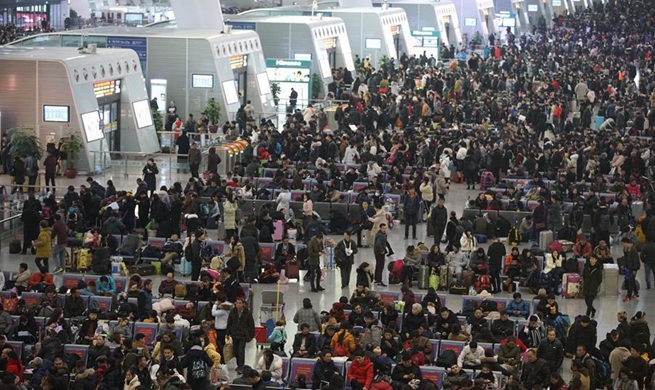WASHINGTON, Jan. 25 (Xinhua) -- A study suggests that tiny aerosol particles from pollution plumes have a greater influence on stormy weather over pristine regions of the world, such as oceans and large forests, than previously expected.
Because water cycling in these areas contributes substantially to global weather patterns, the human-made aerosol effects observed in these regions may also trigger climate shifts around the world, according to the study published Thursday in Science.
Deep convective cloud (DCC) systems that cause the thunderstorms in the Amazonian tropics are major sources of precipitation, changes in atmospheric heat energy, and absorption of radiation from the sun.
It says that the formation of DCCs begins with the creation of droplets, in which atmospheric moisture condenses around airborne particles, such as human-made aerosols.
However, the association between aerosols and climate patterns remain uncertain, and ultrafine aerosol particles that are smaller than 50 nanometers in diameter are thought to be too small to affect cloud formation.
Now using observation and simulation-based data to analyze urban pollution effects on the Amazon rainforest, Fan Jiwen and colleagues in Pacific Northwest National Laboratory showed condensation around ultrafine aerosol particles increased cloud formation and warmed the surrounding air, ultimately intensifying DCC systems.
Before the particles intruded the DCC system, the rainforest's naturally low-aerosol environment was low in condensation and highly water-saturated, the authors found.
When the ultrafine aerosols entered the basin, the supersaturated atmosphere condensed on the particles, leading to increased rain production, warm rain and super-cooled cloud water.
The authors suggest similar aerosol effects may be observed in other tropical regions with ample atmospheric moisture, highlighting the global importance of their results.

















